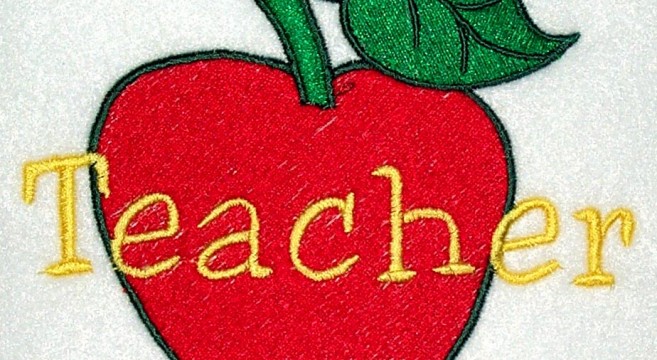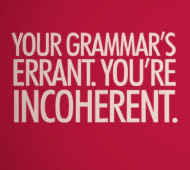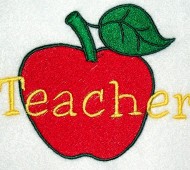Oh teacher stories: the things we’ve heard! No matter your profession, you know there are some things that just should NOT be said to you. Many of us like to think that the general public knows not to say terrible things to people who have certain jobs. For example, if you get pulled over for speeding, it is in bad taste to ask the police officer if he or she smells bacon. Or, when not agreeing with your doctor’s medical advice, it is not appropriate to ask if he or she is actually a doctor or if Halloween has come early. You just don’t do things like that! People in all professions have had terrible things said to them, and teachers are no different; only for some reason, it seems more permissible to say harsh things to a teacher. This is possibly because children are involved, or as some teachers think, we just don’t get the same respect as other professions and are almost looked down on in a way. Sometimes it seems as if people view teaching as a “lowly” profession compared to working in the corporate world or running a law firm. Colleagues, friends who are teachers, and even I myself on a few occasions have heard what you are about to read, and being a history major intent on recording life, I wrote down these hilarious nuggets to later read for my own amusement. Included are both the actual responses as well as fictionalized ones we wish we could have said. As with so many things, there are the things we wish we could say versus the things we actually do say and thinking about “what could have been” is sometimes rather amusing. Bottom line is, there is humor to be found in these inappropriate or insensitive comments, and at the end of the day, they are not bothersome but rather are funny, and like anyone in any profession, teachers must find the humor in what they do. Here are three of my favorites:
Comment: “You don’t know my kid”.
Actual response: “I know what I see at school”.
I beg to differ. I do know your kid: I know the “school version” of your kid, not the home version, to which you are accustomed. I hear what your kid says in the hall to his friends; I see how he acts in class, and I read what he writes. I notice how he rolls his eyes when certain classmates speak, and I see how he attaches himself to the alpha males of the class because they get picked on the least. (Did you know that your child looks up to his grandfather more than anyone else in the world and that someday he wants to be just like him? I did because your son wrote a beautiful paragraph about it in class today). I know how your kid tends to glance at the clock four to five times per class, not because he cares about the time, but because he has a crush on the girl who sits right near it. I know your kid’s thought process because I see it evident in his homework, quizzes and classwork, and I know the efforts he does or does not put forth on a daily basis. Just because I know a different version of your kid doesn’t mean I don’t know him: nobody can know your kid the way you do, but maybe, just maybe, people like me can see things you can’t and know things you can’t ever comprehend.
Comment: “Do you have any idea what you are doing here?!”
Actual response: “I did go to graduate school for teaching and do implement what I have learned. If my practices or integrity are in question, I am happy to direct you to my supervisor.”
I have no idea what I’m doing. No clue. Yes, I put into practice what I learned in school; true, I follow a curriculum and employ sound pedagogical practices and methodologies; indeed, I can create accommodations to follow IEP’s and 504′s practically in my sleep and recount educational laws like I recount my own childhood memories. However, on a daily basis, no, I have no idea what I am doing because each day (each minute, really) is so drastically different from the previous. Working with adolescents, you never know what drama you’re facing when you walk into that classroom each day, so you never really truly know if what you have planned is going to work as designed and therefore, cannot fully know just what you are doing that day. As a teacher, I have to “fly by the seat of my pants”, so to speak, and change things as I deem necessary in order to work best for the class as a whole. Sometimes world or local events occur and require attention in the classroom, which deviates the curriculum off course for a bit, but I manage to swing it back in the right direction, and, as long as it is allowed by the school and/or district, that is perfectly acceptable. My educational background gave me the skills for how to complete this real-world task, as well as the knowledge of laws and general practices. This is what I went to school for, and this is what I know how to do, just as you went to school for whatever profession you joined. I was taught how to work with teenagers and their ever changing attitudes and explosive brain chemistry, and I know (and do) implement the important skills I learned. I do not know what each day will bring, and maybe I won’t do everything perfectly, but I know I do things with the intention of helping children, and if I maintain a professional demeanor and perform within the realm of appropriateness, then I am doing something right. I want to do the correct thing all the time so as to do right by my students, and I tend to overanalyze each and every action, thus making me feel as if I do not know what I am doing. At the end of the day, teachers just have to remember that this is what we chose to do, this is what we trained for, and if you’re putting your best foot forward, then you in fact do know what you are doing, even if sometimes you yourself don’t quite believe it.
Comment: “Those who can, do. Those who can’t, teach” right?! (laughs)
Actual Response: (smile, muted polite laugh)
Funniest. Thing. Ever. Teacher’s just LOVE hearing this classic one liner demeaning their life choices and chosen profession. I’m sure all us teachers out there could have gone into a profession more directly related to our chosen major in college. Math teachers could certainly go on to the engineering field or perhaps financial advising or accounting. English teachers could have gone into the entertainment field to write scripts or screenplays. History teachers could have gone on to law school and become high powered attorneys. BUT THEY DIDN’T for a reason: they WANTED to teach. Perhaps they felt compelled to join this profession for some unknown, innate reason or maybe these people wanted to share knowledge, impart skills onto an impressionable generation or simply do some good in this world by joining a respectable profession. They wanted to help young people further their educations, and that is just as admirable as being a renowned prosecutor or skilled engineer. So in short, we “can and do” what we’re supposed to and that is to teach your child.
Talking About Sandy Hook Next Post:
JFK Assassination Lesson Plans







